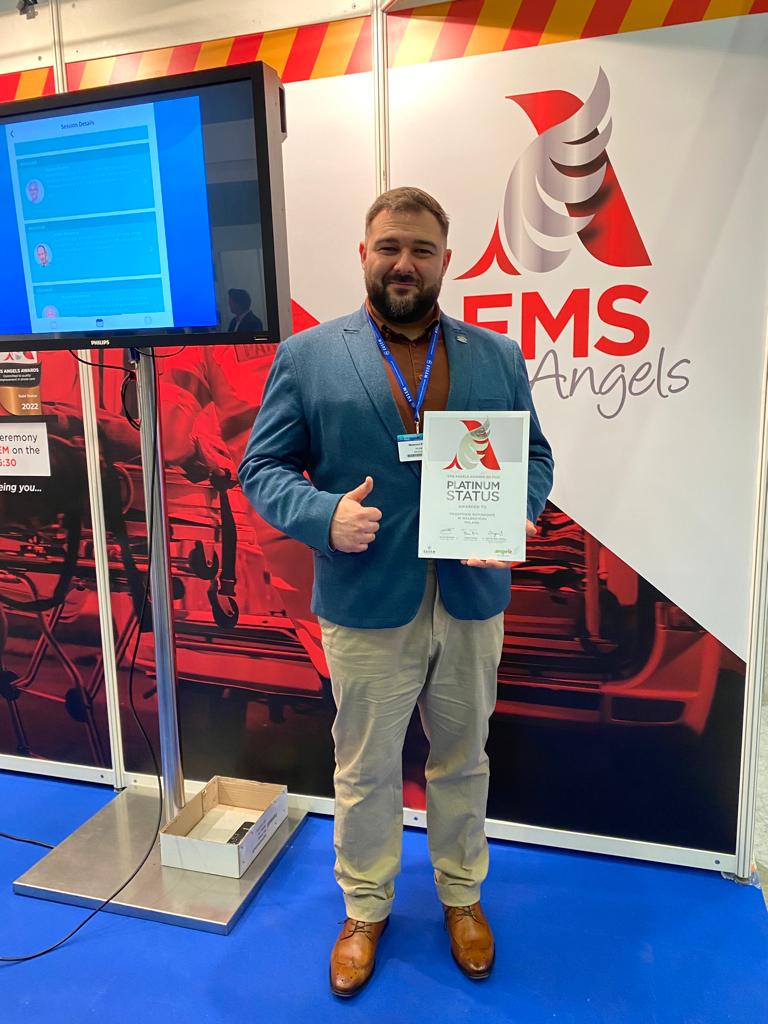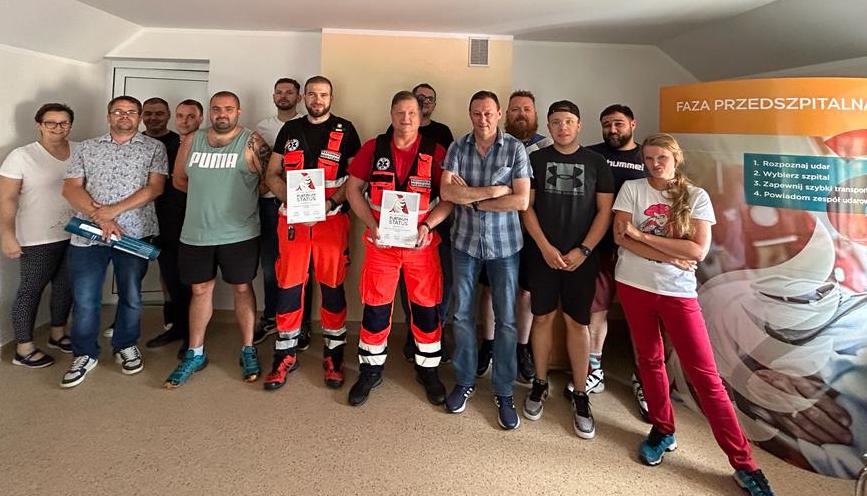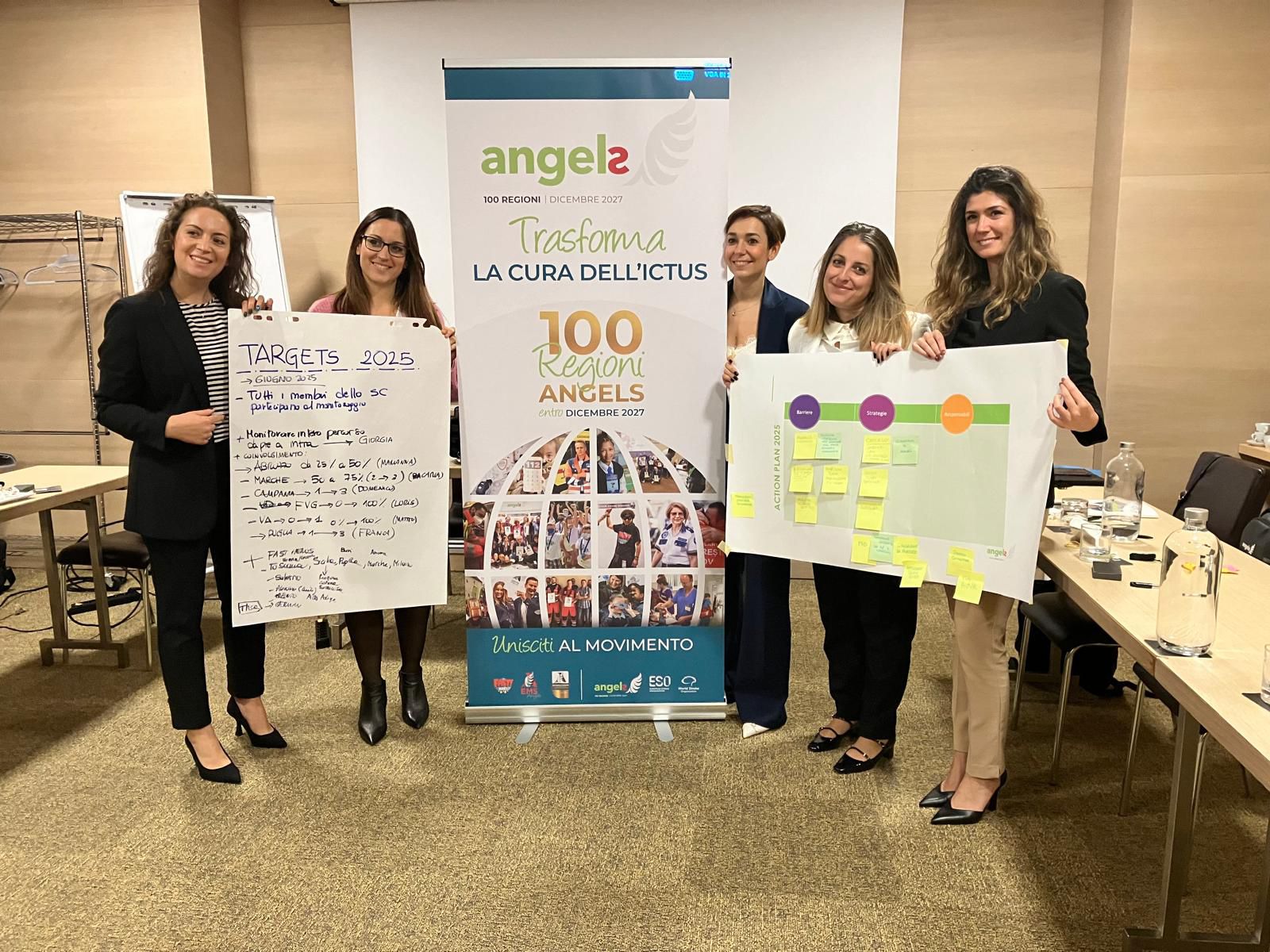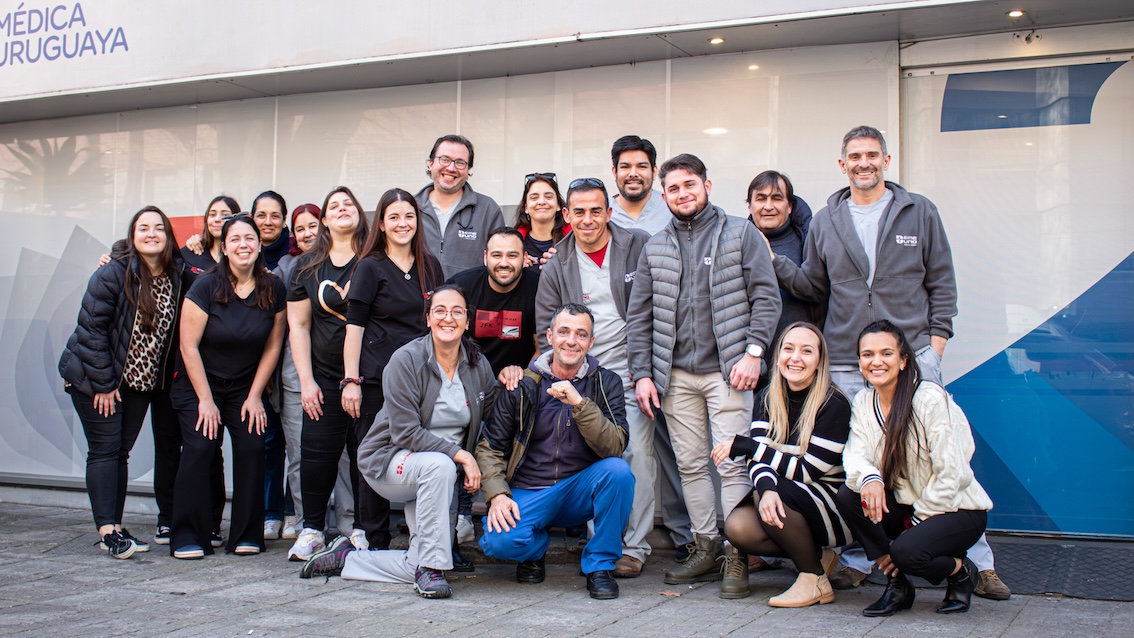
저는 키엘체에 있는 얀자노우스키 대학을 졸업하여 응급 의료 서비스를 전공했습니다. 저는 8년 동안 Wałbrzych의 구급차 서비스에서 근무해 왔습니다.
높은 스트레스와 정신적 긴장 속에서 일하는 것은 나에게 동기를 부여한다. 시간 압박을 받는 상황에서 빠른 결정을 내리는 것은 저를 이 업무에 참여하게 만든 또 다른 요인입니다.
지금까지 제게 가장 중요한 것은 지식과 경험을 얻고, 감별 진단에 대해 배우고, 다양한 질병의 병태생리학적 기전을 이해하는 것이었습니다. 물론 저는 항상 더 커지길 원합니다. 저는 내부 교육에서 그리고 폴란드의 ASLS 강사로서 향후에 더 나이가 많은 동료와 나의 지식과 경험을 공유할 수 있는 기회를 갖게 된 것을 기쁘게 생각합니다.
대중적인 믿음과 달리, 폴란드의 의료 구조 여행의 대부분은 심정지, 교통사고, 심장마비 또는 심지어 뇌졸중을 수반하지 않습니다. 대부분의 경우 노인 환자의 다발성 이환으로 인해 발생하는 응급 상황에 대처합니다. 이를 위해서는 부인과 및 산부인과부터 내과, 의약품 수술 및 정신의학에 이르기까지 다양한 의약품 분야에 대한 지식을 심화해야 합니다.
사고 현장에서 무엇을 기대할 수 있는지 모른다는 사실은 제가 앰뷸런스 서비스에서 일하는 또 다른 이유입니다. 아동의 심정지부터 공격적인 환자의 정신 장애에 이르기까지, 여러분을 기다리고 있는 것과 각 상황을 관리해야 하는 것은 결코 알지 못합니다. 이로 인해 이 업무가 탁월해졌고, 저는 그 어떤 목적으로도 거래하지 않을 것입니다.
저는 주로 Angels 프로젝트에 참여한 후 뇌졸중 주제에 관심이 되었습니다. 이전에는 폴란드의 구급대원들에게 만연한 뇌졸중이 구급대원으로서 우리에게는 기관이 없는 질병이라는 의견에 굴복했습니다. 그러나, 이는 그렇지 않은 것으로 판명되었습니다. 실제로 심장학에서와 마찬가지로, 증상에 기반하여 뇌졸중의 대략적인 위치를 결정할 수 있으며, 경색의 위치를 의심할 수 있습니다. 병원 전 처치에서 구조 팀으로서 우리의 행동은 심장마비 동안만큼 효율적이어야 하며, 뇌졸중 치료 경로는 병원 전단계에서 시작하여 뇌졸중의 진단과 치료를 지연시키는 활동을 생략해야 합니다.
이제 반음영부가 무엇인지, 뇌 조직의 괴사성 변화의 가속화를 방지하는 방법을 이해하는 것이 얼마나 중요한지 깨닫습니다.

와우브르치에 있는 병원 신경학과와 협력하여 우리가 도입할 수 있었던 공동 솔루션이 자랑스럽습니다. 열심히 일하면서 우수성의 기준을 충족할 수 있었고 최고 수준의 서비스를 계속 제공하려는 동기를 가진 동료들(응급실 및 간호사)이 자랑스럽습니다. 그들의 헌신이 없었다면 이러한 성공은 불가능했을 것입니다.
ASLS 과정을 완료한 이후, 저는 가능한 한 많은 사람들과 그곳에서 얻은 지식을 공유하려고 노력했습니다. 사람들은 이것이 환자의 신체 검사에 대한 접근법을 체계화하고 예를 들어 실조와 같은 소뇌 뇌졸중 발현의 진단을 누락하는 것을 피할 수 있다는 점에서 유용하다고 생각합니다.
한 가지 매우 중요한 문제는 폴란드에서 응급 의료팀의 응급구조사와 간호사가 유럽에서 가장 광범위한 권력을 가지고 있다는 것입니다. 예를 들어, 응급 구조대원은 입원 전 환자 관리에서 47개의 약물을 투여할 수 있는 옵션이 있습니다. 그 결과, ASLS 과정의 내용을 수정해야 했으며, 현재 폴란드에서 유효한 허가에 따라 진단 및 약물요법 능력을 강화해야 했다.
다음으로 개선하고자 하는 것은 응급 의료팀과 병원 응급실 간의 협력입니다. Angels의 예정된 시뮬레이션은 시간을 개선하고 조직 장벽을 줄이기 위해 이뤄질 변화에 대한 답변을 확실히 제공할 것입니다.
또한 가까운 시일 내에 응급 의료팀이 CT 또는 MRI 검사실로 직접 이송하여 치료 시간을 크게 줄일 수 있기를 희망합니다. 조직적 관점에서 가능한 경우, 앰뷸런스 팀으로서 우리는 적절한 도구를 제공받는 경우 INR 검사를 위한 혈액 채취를 포함하여 우리 역할을 수행할 준비가 되어 있습니다.
또한 Wałbrzych의 구급차 직원의 자격을 개선하기 위해 고급 ALS 더미를 사용하는 정기 교육을 소개하고자 합니다.
저는 디아코니아 왕궁 소생술 코스와 협력하여 ASLS 교육을 실시할 것이며, 이는 폴란드 전역의 구조 및 간호 직원을 교육할 기회를 제공할 것입니다. 이것은 제가 매우 자랑스럽고 행복한 일입니다.
Wałbrzych의 앰뷸런스 서비스 이사인 Ryszard Kułak씨, 그의 헌신과 협력, Wałbrzych의 앰뷸런스 서비스 소속 모든 동료들의 노고, Angels 조직, 특히 Katarzyna Putyło씨가 제공하는 도움에 감사드립니다.
저는 더 많이, 더 많이 기대하고 있습니다. 우리는 함께 모든 것을 할 수 있습니다.



